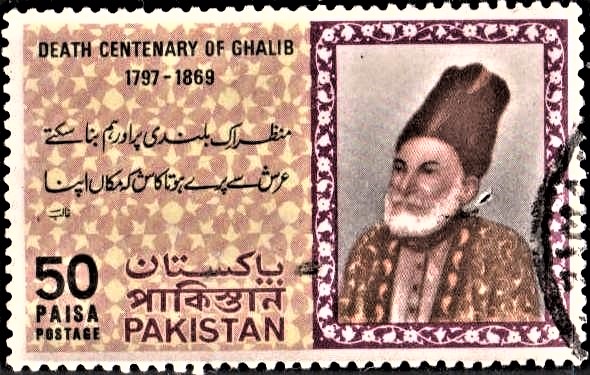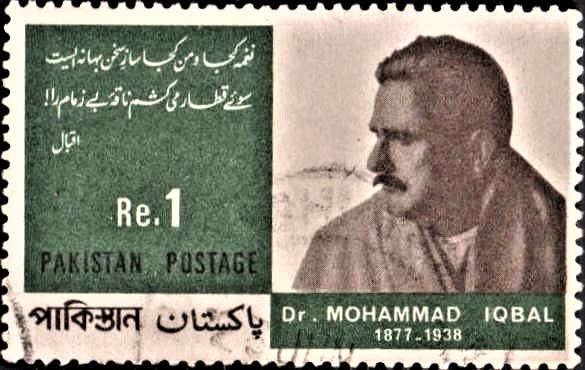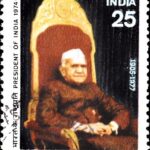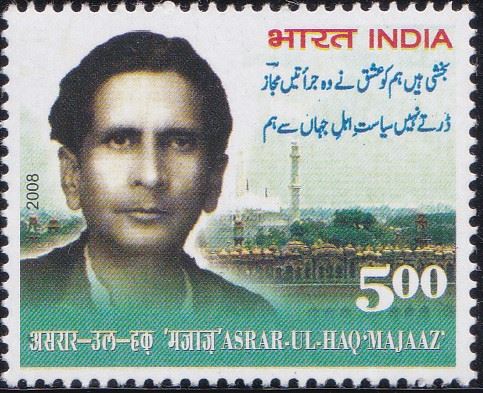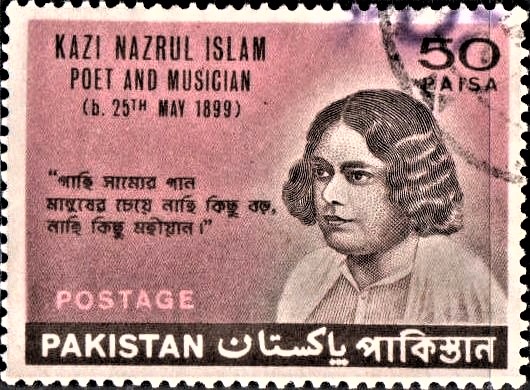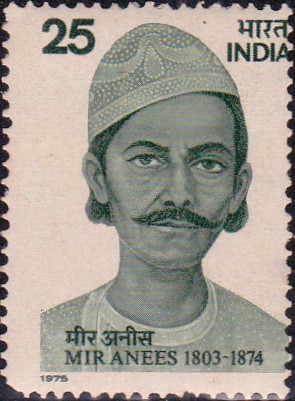
Mir Anees
A commemorative postage stamp on Meer Babar Ali Anees, a Urdu poet [a part of the Personalities Stamp series] :
 Issued by India
Issued by India
Issued on Sep 4, 1975
Issued for : The Posts and Telegraphs Department is privileged to bring out stamps in memory of two great personalities of India, Ahilyabai Holkar and Mir Anees.
Description of Design : The stamp design is vertical and shows the portrait of the poet.
Designed by : India Security Press
Type : Stamp, Mint Condition
Colour : Olive Green
Denomination : 25 Paise
Overall size : 3.34 x 2.46 cms.
Printing size : 2.99 x 2.1 cms.
Perforation : 13½ x 14
Watermark : Printed on unwatermarked coated paper on reels
Quantity printed : 3 Million
Number per issue sheet : 54
Printed at : India Security Press
Name : Mir Babar Ali Anees
Born on 1800 at Faizabad, Oudh State, Mughal India [now in Uttar Pradesh, India]
Died on Dec 10, 1874 at Lucknow, North-Western Provinces, British India [now in Uttar Pradesh, India]
About :
- Mir Anees, one of the most brilliant stars in the galaxy of Urdu poets, was born in a family of Urdu poets. His ancestors came to India from Iran during the reign of Shahjahan and were received with honour. It was at the suggestion of his father, Mir Khaliq, that Mir Anees started writing ‘Marsia’. He took it to such heights that his art is still unsurpassed in Urdu poetry. His fame spread far and wide in his lifetime. Such was the charm of his elegant and powerful diction that he recited his poetry to some of the largest audiences in India and kept them spell-bound for hours. Temperamentally, he was a considerate, quiet, kind and warm-hearted person, shunning riches and leading a simple life.
- ‘Marsias’ of Mir Anees, though related to a particular event in the history of Islam, have been a source of inspiration to millions irrespective of their religion, caste or creed. He presented brilliantly the personality of Imam Hussain, the hero of Karbala, and through him preached the love of all that is best in human nature – piety, chivalry, undaunted opposition to tyranny and oppression and readiness to sacrifice one’s all in the cause of righteousness. He succeeded in making a fine synthesis of the cultures of India and Arabia by depicting the scenes and the emotional and psychological reactions of the various characters in the tragic drama of Karbala, not only in very vivid terms but also in giving them something of Indian colour. His ‘Marsias’, known for their richness of lyrical content and intensity of feeling, have rightly come to be regarded as classics and are enjoyed even today by all lovers of Urdu poetry and Indian culture.


